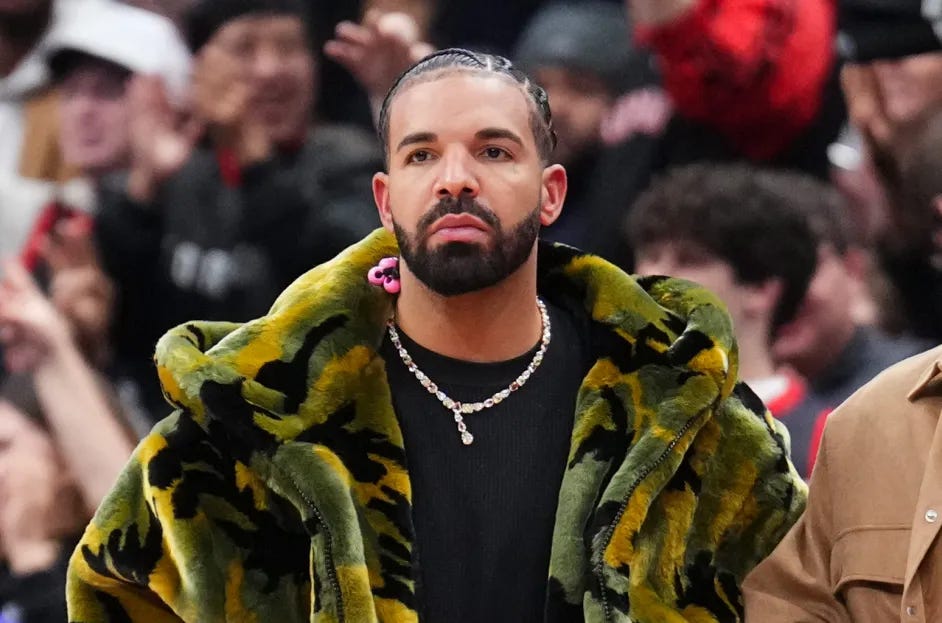UMG Moves to Dismiss Drake’s "Not Like Us" Case and Halt Discovery — Will the Court Agree?
Drake wants UMG to hand over internal records related to Kendrick Lamar, but the label says his lawsuit is baseless and his requests are unreasonable. Keep reading for all the details.
Universal Music Group (UMG) is taking aggressive legal action to shut down Drake’s defamation lawsuit over Kendrick Lamar’s diss track “Not Like Us.” After filing a motion to dismiss the case on March 17, UMG has now asked a federal judge to halt all discovery, arguing that Drake is unfairly demanding “highly commercially sensitive documents” - including Lamar’s record deal.
The motion to dismiss calls Drake’s lawsuit “utterly without merit” and insists that it should be dismissed with prejudice. UMG argues that “Not Like Us” is a diss track filled with artistic hyperbole, not factual statements, and that the case is simply Drake’s attempt to “save face” after losing a high-profile rap battle.
UMG Seeks to Pause Discovery
A day after submitting its dismissal request, UMG followed up by asking the court to pause all discovery efforts until a ruling is made on the motion. The label claims that since the ruling is likely to end the case entirely, it shouldn’t be forced to comply with burdensome document requests that will ultimately “be rendered moot.”
UMG’s filing claims that Drake’s legal team is making “broad discovery” requests, imposing an “undue burden” on the company. Among these demands are details about Interscope boss John Janick’s pay structure and all contracts between UMG and Kendrick Lamar.
“Drake’s requests… seek production of confidential, proprietary, and highly commercially sensitive documents — including all contracts between UMG and Kendrick Lamar,” UMG writes. “Proceeding with discovery while the motion is pending would waste the parties’ resources and would constitute an undue burden on defendant.”
Drake’s Legal Team Responds
Drake’s attorney, Michael J. Gottlieb, pushed back against UMG’s attempt to delay discovery, calling it a desperate move to avoid transparency.
“This motion is a ploy to delay producing documents and communications that UMG hopes to keep hidden and buried,” Gottlieb said in a statement. “If UMG has nothing to hide, it should not have an issue with discovery.”
UMG has not responded to requests for comment.
Key Arguments in UMG’s Motion to Dismiss
Here’s a breakdown of UMG’s key arguments against Drake’s lawsuit:
1. Diss Tracks Are Opinion, Not Defamation
UMG argues that “Not Like Us” is filled with rhetorical hyperbole, not factual statements. The filing states, “Diss tracks are a popular and celebrated artform centered around outrageous insults, and they would be severely chilled if Drake’s suit were permitted to proceed.” The label insists no reasonable listener would take Lamar’s lyrics as literal truth.
2. Drake Invited the Lyrics He’s Suing Over
UMG highlights that Drake himself referenced allegations in his “Taylor Made Freestyle,” rapping, “Talk about [Drake] likin’ young girls, that’s a gift from me / Heard it on the Budden Podcast, it’s gotta be true.” The label argues that since Drake himself brought up the topic, he can’t now claim defamation when Lamar responded.
3. Drake Previously Opposed Treating Rap Lyrics as Literal
UMG calls out Drake’s past stance on using rap lyrics as evidence in court. The filing notes that in 2022, Drake signed a public petition against prosecutors using rap lyrics as literal statements in legal cases. The label states, “Drake was right then and is wrong now.”
4. No Proof of “Actual Malice”
As a public figure, Drake must prove that UMG acted with “actual malice” - meaning they knowingly spread false information or acted recklessly. UMG insists there’s no evidence of this, arguing, “UMG released a rap diss track, conveying fiery rhetoric and insults - not factual assessments, much less false ones.”
5. Legal Claims Don't Hold Up
Drake’s lawsuit cites harassment and deceptive business practices under New York law. However, UMG argues these claims are invalid, as the harassment law does not allow individuals to sue privately, and the deceptive business practices statute requires consumer harm, which Drake has not proven.
Ongoing Legal Battle Over Discovery
This isn’t the first time the two sides have clashed over discovery. Last month, Drake’s legal team accused UMG of attempting to delay the case, citing Lamar’s Super Bowl halftime performance as evidence of ongoing harm. The judge sided with Drake on that procedural issue, but UMG is now doubling down with its latest motion.
UMG’s legal team argues that allowing discovery to proceed would set a dangerous precedent for defamation cases involving artistic expression.
“Critically, courts in this District have emphasized that defamation defendants must be protected from unnecessary discovery to safeguard First Amendment protections,” the label states.
What’s Next?
If the judge grants UMG’s motion to dismiss, the case will be over. If not, Drake’s lawsuit will proceed, and UMG may be forced to turn over sensitive documents related to Lamar’s record deal and internal business operations.
With both sides refusing to back down, this case could have major implications for the intersection of hip-hop culture, artistic freedom, and defamation law.



